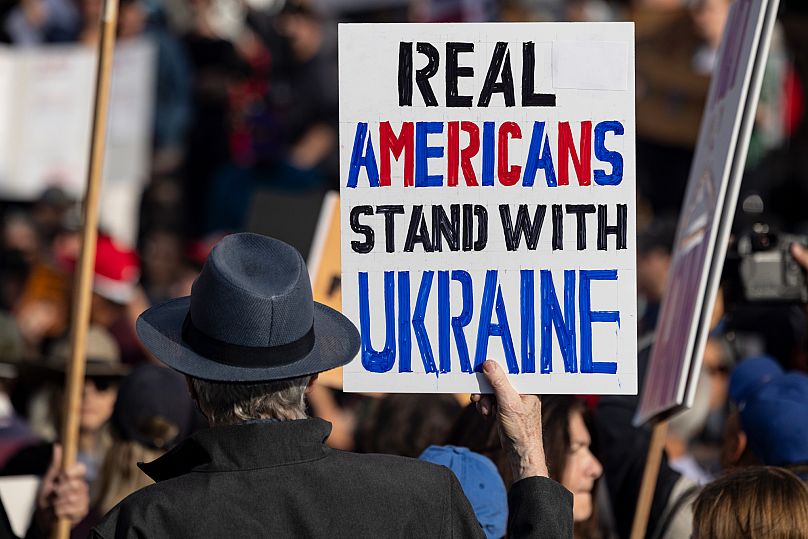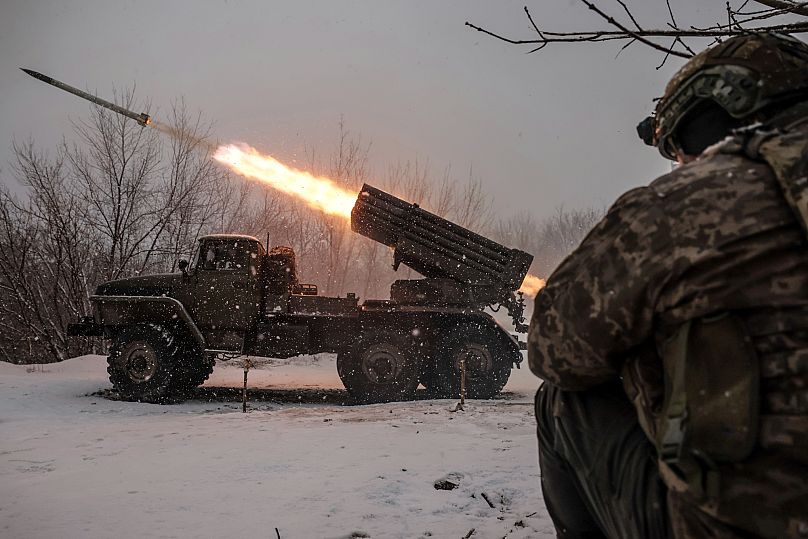US President Donald Trump has announced a new phase of Ukraine ceasefire negotiations between American and Russian delegations in a statement published by the public service network, C-Span.
Trump stated that the discussions would occur in Riyadh, the Saudi capital, on February 25, a week following the inaugural round which took place in the same city on Tuesday.
Following the meeting, US Secretary of State Marco Rubio stated that both parties had largely agreed on pursuing three objectives: to re-establish staffing at their respective embassies in Washington and Moscow; to establish a high-level team to facilitate Ukraine peace negotiations; and to explore enhanced diplomatic and economic ties.
He emphasized that the talks, which were attended by his Russian counterpart Sergey Lavrov and other senior Russian officials, marked the start of a conversation and that more work remains to be done.
Lavrov termed the meeting as "very useful."
No Ukrainian officials attended, a consequence of the country's ongoing struggle against the numerically superior Russian forces, nearly three years after Moscow's large-scale invasion of its smaller neighbor.
Ukrainian President Volodymyr Zelenskyy stated that his country would not accept any outcome from the talks as Kyiv was not involved, and he also postponed his own trip to Saudi Arabia, which was originally scheduled for last Wednesday.
European allies have also expressed dismay at being overlooked.
Trump-Putin summit
Meanwhile, Russia's Deputy Foreign Minister Sergei Ryabkov has stated that preparations are underway for a face-to-face meeting between Trump and his Russian counterpart Vladimir Putin, marking a significant shift away from Western isolation of Moscow in response to its conflict in Ukraine.
Ryabkov told Russian state media that a potential Trump-Putin summit could involve extensive discussions on global issues and not be limited to the conflict in Ukraine.
He expressed concern about initiating steps towards normalizing relations between the two countries, particularly in addressing the most pressing and highly dangerous situations, of which Ukraine is a notable example.
He stated that the process of organizing such a meeting is still in its initial stages, and it will need "the most intensive preparatory work" to come to fruition.
That initial round of peace talks prompted European allies to rally behind Zelenskyy, concerned about Trump's apparent shift towards Moscow and worries that peace negotiations would take place without Ukraine's direct participation, potentially favoring Russia.
On Friday, Trump seemed to reverse his previous comments that falsely accused Kyiv of starting the war, but insisted that Zelenskyy and former President Joe Biden should have made more of an effort to reach a settlement with Putin.
"He says, 'Russia attacked, but they shouldn't have let him attack,'" he said during a radio interview with Brian Kilmeade of Fox News, referring to the Russian leader.
Russia's military crossed into Ukraine on February 24, 2022, initiating a large-scale invasion that Putin attempted to validate by falsely claiming it was necessary to safeguard Russian-speaking civilians in eastern Ukraine and prevent the country from joining NATO.


